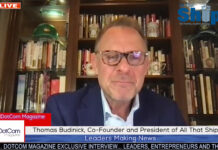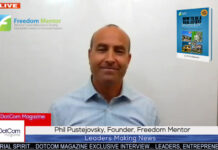Veracity is a term that originates from the Latin word “veracitas,” meaning truthfulness or accuracy. In various contexts, veracity refers to the degree of truthfulness or accuracy of information, statements, or data. It is a fundamental concept in fields such as philosophy, ethics, journalism, and data science, where the reliability and credibility of information are paramount. Understanding veracity is essential for evaluating the trustworthiness of sources, making informed decisions, and maintaining integrity in communication and decision-making processes.
1. Definition of Veracity
Veracity refers to the extent to which something is true or accurate. It encompasses the truthfulness, reliability, and credibility of information, statements, or data. In a broader sense, veracity encompasses not only factual accuracy but also the absence of deception, manipulation, or bias in communication.
2. Importance of Veracity
Veracity plays a crucial role in various aspects of human life, including communication, decision-making, and trust-building. In journalism and media, veracity is essential for maintaining credibility and integrity, as audiences rely on accurate and truthful information to make informed decisions. In science and research, veracity is fundamental for advancing knowledge and understanding, as scientific progress depends on the validity and reproducibility of findings.
3. Veracity in Data Science
In the field of data science, veracity refers to the quality and reliability of data. Data veracity encompasses factors such as data accuracy, completeness, consistency, and reliability. Ensuring data veracity is critical for the success of data-driven initiatives, as inaccurate or unreliable data can lead to flawed analyses, erroneous conclusions, and misguided decision-making.
4. Challenges to Veracity
Despite its importance, veracity faces numerous challenges in today’s digital age. The proliferation of misinformation, disinformation, and fake news poses significant threats to veracity, undermining trust in information sources and institutions. Additionally, the rise of data breaches, cyberattacks, and data manipulation techniques has raised concerns about the integrity and reliability of digital data.
5. Strategies for Ensuring Veracity
To address challenges to veracity, various strategies and approaches have been proposed. These include fact-checking initiatives, media literacy programs, data validation techniques, and cybersecurity measures. Additionally, promoting transparency, accountability, and ethical standards in communication and data practices can help enhance veracity and trustworthiness.
6. Veracity in Business and Decision-Making
In the business world, veracity is critical for making sound decisions and building trust with stakeholders. Organizations rely on accurate and reliable information to assess risks, identify opportunities, and formulate strategies. Veracity in financial reporting, marketing claims, and customer communications is essential for maintaining credibility and reputation.
7. Ethical Considerations
Veracity raises important ethical considerations, particularly in fields where the stakes are high, such as journalism, healthcare, and law. Ethical principles such as honesty, transparency, and accountability guide responsible behavior and decision-making, ensuring that veracity is upheld and respected.
8. Future Trends
As technology continues to advance and society becomes increasingly reliant on digital information, the importance of veracity will only grow. Emerging technologies such as artificial intelligence and blockchain offer new opportunities for enhancing veracity and trust in information and data. However, they also present new challenges and ethical dilemmas that must be addressed.
9. Veracity in Journalism and Media
In journalism and media, maintaining veracity is paramount for upholding the public trust and fulfilling the watchdog role of the press. Journalistic ethics require reporters to verify information from multiple sources, fact-check claims, and correct errors promptly. However, in today’s digital landscape, the spread of misinformation and disinformation presents significant challenges to veracity, requiring journalists to be vigilant in distinguishing fact from fiction.
10. Veracity in Education and Critical Thinking
Promoting veracity is essential in education to cultivate critical thinking skills and empower individuals to evaluate information critically. Educational curricula should emphasize media literacy, information literacy, and digital literacy to help students discern credible sources, analyze evidence, and recognize bias. By teaching students how to question, investigate, and verify information, educators can equip them with the tools they need to navigate the complexities of the information age.
11. Veracity in Healthcare and Medicine
Veracity is critical in healthcare and medicine, where accurate information can mean the difference between life and death. Patients rely on healthcare professionals to provide truthful and evidence-based guidance regarding their health conditions, treatment options, and prognosis. Healthcare providers must adhere to ethical standards and best practices in communication to ensure that patients receive reliable information and make informed decisions about their care.
12. Veracity in Government and Public Policy
Veracity is essential in government and public policy to maintain transparency, accountability, and public trust. Government agencies must provide accurate and timely information to the public on matters of public interest, such as public health, safety, and security. Public officials and policymakers must base their decisions on reliable evidence, expert analysis, and public input to ensure that policies are effective, equitable, and accountable.
13. Veracity in Legal and Judicial Systems
Veracity is fundamental in the legal and judicial systems to ensure the fair administration of justice and uphold the rule of law. Legal professionals have a duty to present truthful and accurate evidence in court proceedings and uphold ethical standards of honesty and integrity. Judges and juries rely on veracity to make impartial and just decisions, free from bias, manipulation, or deception.
14. Veracity in Technology and Data Ethics
In the digital age, veracity is crucial for maintaining trust and confidence in technology and data-driven systems. Technology companies must prioritize data integrity, privacy, and security to protect users’ rights and prevent abuses of power. Ethical considerations such as algorithmic transparency, fairness, and accountability are essential for ensuring that technology serves the public good and upholds democratic values.
15. Veracity in Social and Environmental Responsibility
Veracity extends beyond individual actions to encompass broader social and environmental responsibilities. Companies and organizations have a duty to communicate honestly and transparently with their stakeholders, including employees, customers, investors, and the community. Environmental stewardship and sustainability efforts must be grounded in veracity, with accurate reporting and accountability mechanisms to track progress and impact.
Veracity is a foundational principle that underpins trust, integrity, and credibility in all aspects of human interaction and society. Whether in journalism, education, healthcare, government, law, technology, or corporate governance, veracity is essential for fostering transparency, accountability, and ethical behavior. By promoting veracity and upholding truthfulness and accuracy in communication and decision-making, individuals, organizations, and societies can build trust, strengthen relationships, and advance the common good.
Conclusion
Veracity is a fundamental concept that underpins trust, integrity, and credibility in communication, decision-making, and information exchange. Whether in journalism, data science, business, or everyday life, veracity plays a crucial role in ensuring that information is truthful, accurate, and reliable. By understanding the importance of veracity and implementing strategies to promote it, individuals, organizations, and society as a whole can build trust, foster transparency, and make more informed choices.

















